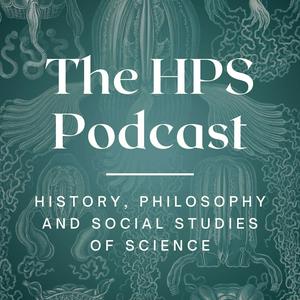S5 E11 - Steven Shapin on the Social Life of Scientific Knowledge
This week, Thomas Spiteri speaks with Steven Shapin, Professor Emeritus of the History of Science at Harvard. Shapin reflects on his path into the history and sociology of science and discusses the central concerns of his work: how knowledge is produced, the social foundations of trust in science, the embodied nature of knowledge, and the performance of expertise. He revisits Leviathan and the Air-Pump, co-authored with Simon Schaffer, outlining the Boyle–Hobbes controversy and showing how seventeenth-century scientific credibility depended on rhetoric, social standing, and performance, while highlighting the broader relevance of the book’s insights into the social foundations of knowledge. Shapin considers contemporary challenges, including political interventions in science and universities, the effects of digital communication, and the fragmentation of expertise, and reframes the “crisis of truth” as a crisis of social knowledge.Finally, he connects these themes to his recent work on taste and eating (Eating and Being), examining how communities form shared judgments about food and flavour, paralleling the intersubjective construction of objectivity in science.In this episode:Recounts his path through Edinburgh, UCSD, and Harvard and what each taught about interdisciplinarity.Explains the story and broader thesis of Leviathan and the Air-Pump: facts are made credible through practice, rhetoric, and social arrangements.Reflects on shifting disciplinary fault lines.Describes how credibility is performed today and the growing value of face-to-face embodiment.Surveys credibility issues from science’s entanglement with business, government, and partisan politics.Discusses Eating and Being, drawing parallels between intersubjective agreement in science and taste.Transcript being prepared.Photo: Steven Shapin, Groningen, Netherlands, March 2020, by Newfrogm, CC BY 4.0 via Wikimedia CommonsRelevant linksSteven Shapin — Harvard profile / home pageLARB Essay “Is There a Crisis of Truth?” (2019)Leviathan and the Air-Pump: Hobbes, Boyle, and the Experimental Life (Shapin & Schaffer, 1985) – Wikipedia entrySteven Shapin's booksThanks for listening to The HPS Podcast. You can find more about us on our website, Bluesky, Instagram and Facebook feeds. This podcast would not be possible without the support of School of Historical and Philosophical Studies at the University of Melbourne and the Hansen Little Public Humanities Grant scheme. Music by ComaStudio. Website HPS Podcast | hpsunimelb.org



